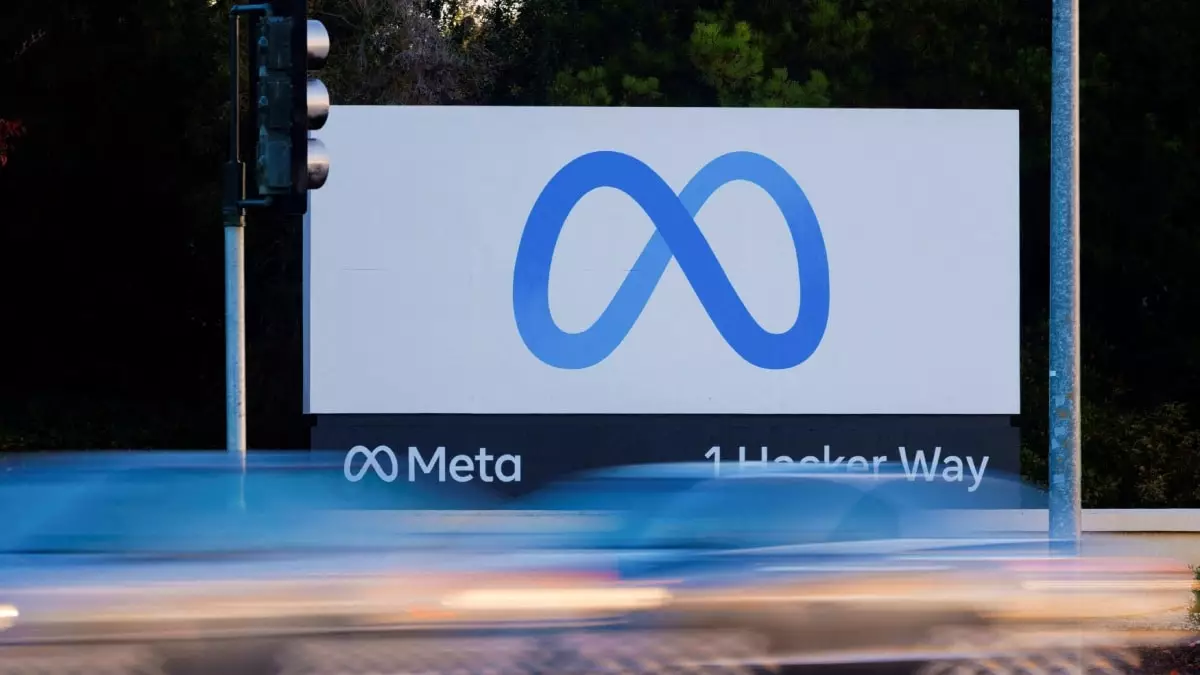In a watershed moment for digital regulation, Meta Platforms Inc. recently faced a €798 million ($841 million or approximately Rs. 7,100 crore) fine from EU regulators. This penalty marks the company’s first significant sanction under European Union antitrust laws, setting a precedent for how dominant tech players interact with their ecosystems and rivals. The ruling specifically addresses Meta’s controversial practice of bundling its Facebook Marketplace service with its primary social networking platform, Facebook. The decision underscores a growing commitment from the EU to scrutinize and penalize unfair trade practices among tech giants, an arena where the stakes—both economically and politically—have reached unprecedented levels.
The European Commission’s findings illuminate a keen understanding of how Meta’s operational strategies may suppress competition. According to Margrethe Vestager, the EU’s antitrust chief, the company’s actions unfairly stacked the deck against competitors also aiming for a share of the classified ads market. Specifically, the merger of Facebook and its Marketplace service allowed Meta to exploit its vast user base, leveraging network effects in a manner that disadvantaged rival platforms. More importantly, the investigation revealed that Meta utilized data from competitors to enhance its service, further bolstering its argument that the company engaged in manipulative practices that stifle free market competition.
This ruling not only penalizes Meta but serves as a clarion call for other tech entities. The EU’s firm stance indicates that entrenched corporations will face heightened scrutiny, a shift that may usher in a new era of digital antitrust enforcement globally. As regulators gain a deeper understanding of technological ecosystems, they are increasingly prepared to hold companies accountable for monopolistic behaviors that can derail market dynamics. The implications of this decision extend beyond Meta alone; they set the groundwork for future regulatory actions against other tech giants, such as Google and Amazon, who have also faced allegations of anti-competitive conduct.
The Ripple Effects: Meta’s Response and Future Challenges
In light of the fine, Meta has declared its intention to appeal the ruling, arguing that the decision overlooks the complexities of a competitive European market. It’s an interesting move, raising questions about the relationship between regulation and innovation. If Meta’s appeal is successful, it could dilute the effects of the ruling or even set a precedent for softer treatment of tech firms. However, the risks of a prolonged legal battle may hinder the company’s strategic direction, particularly as it strives to pivot toward burgeoning technologies like artificial intelligence and virtual reality. Furthermore, the recent ruling could fuel Meta’s vulnerability to additional regulatory scrutiny in both Europe and the U.S., especially as its rivals, harnessing antitrust discourse, gain traction.
Meta’s predicament comes at a pivotal time in tech regulation, defined by emerging laws like the Digital Markets Act (DMA). This new legislation seeks to impose stricter limits on dominant firms while fostering competition in the marketplace. The DMA notably empowers EU regulators to impose bans and obligations that could reshape how companies operate. With ongoing investigations into tech giants like Apple and Google, the EU aims to ensure compliance with the rapid evolution of these new regulations. The landscape is shifting, and traditional habits may no longer provide companies with the immunity they once enjoyed.
The €798 million fine against Meta signals a critical juncture in the ongoing struggle between big tech and regulatory authorities. The decision underscores the EU’s commitment to fostering a more equitable digital marketplace, reflecting a serious push to ensure fair competition among established and emerging players. As technological prowess continues to intertwine with market dynamics, the evolving landscape of digital antitrust could redefine the contours of influence, power, and responsibility within the tech industry. Looking forward, the lessons learned from this episode will likely ripple through the strategies of both regulators and companies, as all stakeholders adapt to an increasingly scrutinized digital economy.

